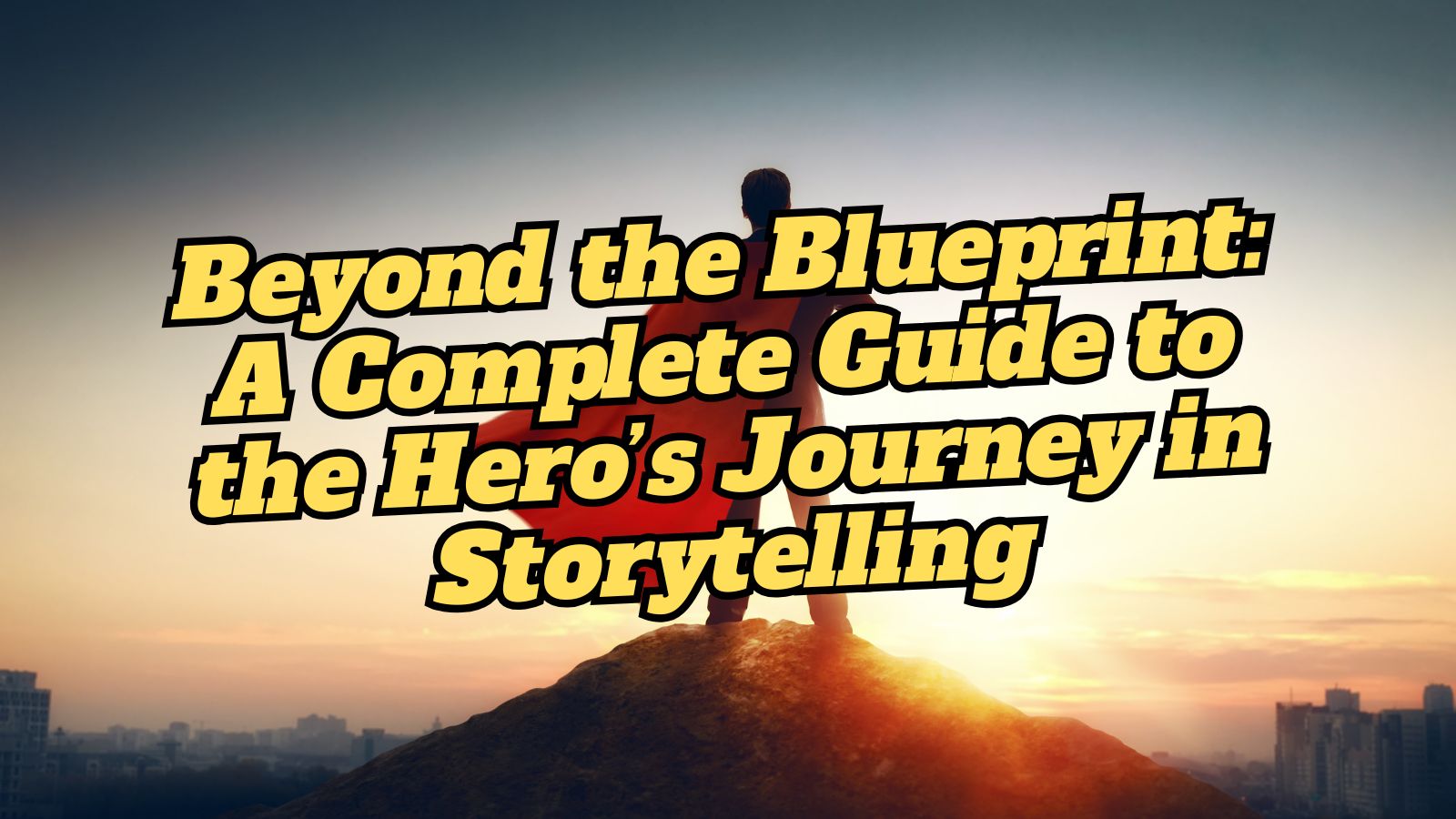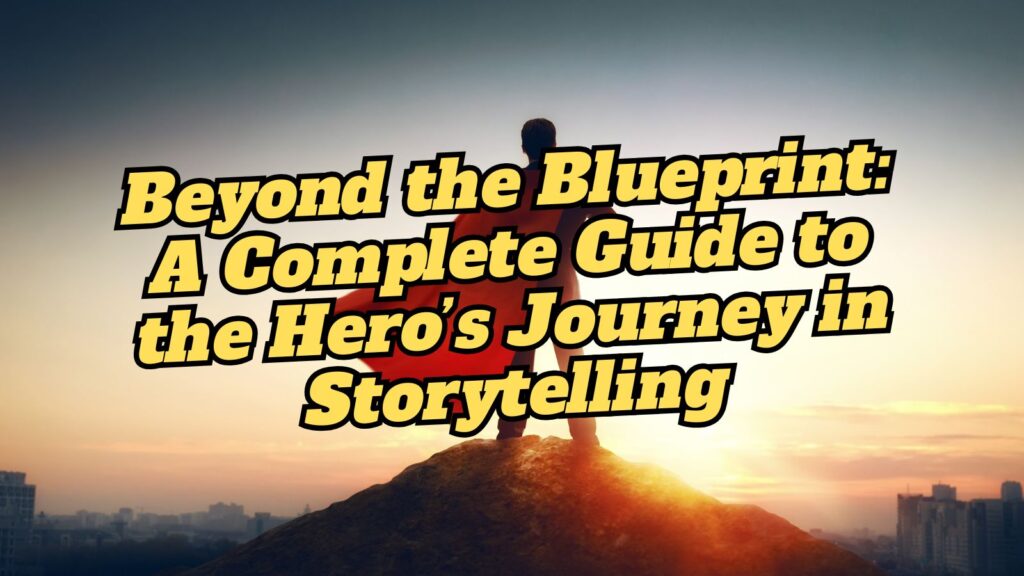Beyond the Blueprint: A Complete Guide to the Hero’s Journey in Storytelling
The Hero’s Journey isn’t just a formula—it’s a map to the human experience of transformation. While Joseph Campbell identified this pattern across world mythologies, and Christopher Vogler adapted it for modern storytelling, the most powerful stories don’t simply follow the template—they reinvent it. This comprehensive guide will help you leverage the Hero’s Journey while creating a story that feels uniquely yours.
The Timeless Power of the Journey
Stories built on the Hero’s Journey framework resonate because they mirror the psychological process of growth and transformation we all experience. From Star Wars to The Lion King, from The Matrix to Moana, these narratives capture a fundamental truth: meaningful change requires leaving comfort behind, facing our deepest fears, and returning transformed.
But why does this structure work so well? Because it:
- Reflects authentic human experience – The stages mirror real psychological development and change
- Creates natural dramatic tension – Each threshold crossing raises stakes and generates conflict
- Provides clear character evolution – The transformational arc becomes visible through concrete stages
- Balances external action with internal growth – The outer journey reflects the inner journey
Common Pitfalls and How to Avoid Them
Many writers struggle with the Hero’s Journey because they apply it too rigidly. Here are the most common mistakes and how to overcome them:
- The “Check-the-Box” Approach
Problem: Treating each stage as an obligatory plot point to tick off a list.
Solution: Focus on the psychological purpose behind each stage. Ask how each threshold serves your character’s specific transformation. - The Formulaic Structure
Problem: Creating predictable stories where readers can anticipate every turn.
Solution: Subvert expectations by combining, reordering, or reimagining stages. Your “mentor” might betray the hero; the “reward” might come with terrible consequences. - The Passive Hero
Problem: Allowing the journey’s structure to push the hero rather than having the hero drive the action.
Solution: Ensure your protagonist makes active choices at each threshold. Even “refusal of the call” should be a deliberate decision, not just hesitation. - The Superficial Transformation
Problem: External plot changes that don’t reflect genuine internal growth.
Solution: Define your hero’s internal wounds, false beliefs, and values before plotting. Then ensure each external challenge directly confronts these internal issues.
Customizing the Journey for Your Genre
While universally applicable, the Hero’s Journey looks different across genres:
Romance: The “ordinary world” often shows emotional barriers; the “supreme ordeal” typically involves vulnerability and the risk of heartbreak; the “elixir” is usually a healthier capacity for intimacy.
Mystery/Thriller: The “call to adventure” is typically the crime or inciting incident; the “tests” involve gathering clues; the “inmost cave” often places the protagonist in direct danger from the antagonist.
Fantasy/Science Fiction: These genres often follow the classic journey closely but use their speculative elements to make the “special world” literally different from the ordinary one, allowing for more visual and dramatic threshold crossings.
Literary Fiction: May feature a more subtle journey with emphasis on internal thresholds; the “mentor” might be an idea rather than a person; the “elixir” is often a profound insight rather than a physical object.
The Five Transformational Arcs
The Hero’s Journey accommodates many different character arcs. Consider which best fits your protagonist:
- The Growth Arc – Character overcomes internal flaws to become more complete (e.g., The King’s Speech)
- The Disillusionment Arc – Character discovers painful truths that change their worldview (e.g., The Graduate)
- The Fall Arc – Character’s flaws lead to their downfall (e.g., Breaking Bad)
- The Redemption Arc – Character moves from darkness to light (e.g., A Christmas Carol)
- The Testing Arc – Character’s existing values are challenged and ultimately affirmed (e.g., Captain America)
Bringing Your Worksheet to Life
The attached Hero’s Journey Worksheet isn’t just a planning tool—it’s a dialogue between you and your story. Here’s how to use it effectively:
- Fill it out in stages – Complete it first before drafting, again during your first draft when you know your characters better, and once more during revision.
- Look for connections – Draw lines between related elements. How does the mentor prepare the hero specifically for the ordeal? How does the reward directly address the hero’s initial weakness?
- Identify gaps and opportunities – Where does your excitement dip? Those are places to reinvent the framework or dig deeper.
- Test alternative paths – Fill out multiple versions exploring different journeys for your character. Which creates the most compelling transformation?
- Focus on the transitions – The most powerful moments often come not at the stages themselves but in the thresholds between them. How does your character move from resistance to commitment? From victory to return?
GET YOUR FREE HERO’S JOURNEY WORKSHEET
Download our comprehensive Hero’s Journey Worksheet to map out your character’s transformational arc. Perfect for novelists, screenwriters, and storytellers in any medium.
By downloading, you’ll also receive our weekly craft newsletter with exclusive writing tips and resources. You can unsubscribe anytime.
Beyond Campbell: Modern Adaptations and Cross-Cultural Journeys
The Hero’s Journey has evolved beyond Campbell’s original framework:
- The Heroine’s Journey (Maureen Murdock) – Emphasizes reconciliation with the feminine, healing divides, and integration rather than conquest
- The Virgin’s Promise (Kim Hudson) – Focuses on the journey to authentic self-expression rather than external quests
- The Fool’s Journey (Tarot-inspired) – Highlights the spiritual and psychological growth through innocence to wisdom
The transformative journey appears across cultures, often with unique variations that enrich our understanding:
- The Journey of Mwindo (Nyanga epic from Central Africa) – Features a hero born fully formed who must learn humility through his trials
- The Ramayana (Indian epic) – Follows Rama’s exile and return, with emphasis on dharma (duty) rather than personal transformation
- Journey to the West (Chinese classic) – Features multiple hero figures undertaking physical and spiritual journeys simultaneously
These diverse interpretations remind us that while the Hero’s Journey may be universal, its expression is wonderfully varied—offering rich inspiration beyond Western paradigms.
Conclusion: Your Journey as a Writer
Ironically, mastering the Hero’s Journey as a writer follows its own heroic path. Your ordinary world is conventional storytelling. The call is the desire to create something memorable. You’ll face tests and ordeals as you struggle with drafts. And eventually, you’ll return with your own unique storytelling voice—the true elixir.
Whether you’re outlining your first novel or revising your tenth, reimagining the Hero’s Journey through your character’s unique lens can unlock the emotional heart of your story. Use the worksheet as a guide, not a rulebook—and let your protagonist lead the way.
The worksheet you’re about to download isn’t a formula for success—it’s an invitation to transformation, both for your characters and for you as a storyteller. Use it not just to plot your story, but to discover the deeper currents running beneath it.
- Science Fiction Quiz #1 - May 21, 2025
- Awakening All Five Senses: How to Write Descriptions That Come Alive - May 15, 2025
- Comment Contest: Win Promotion for Your Writing! - May 14, 2025

